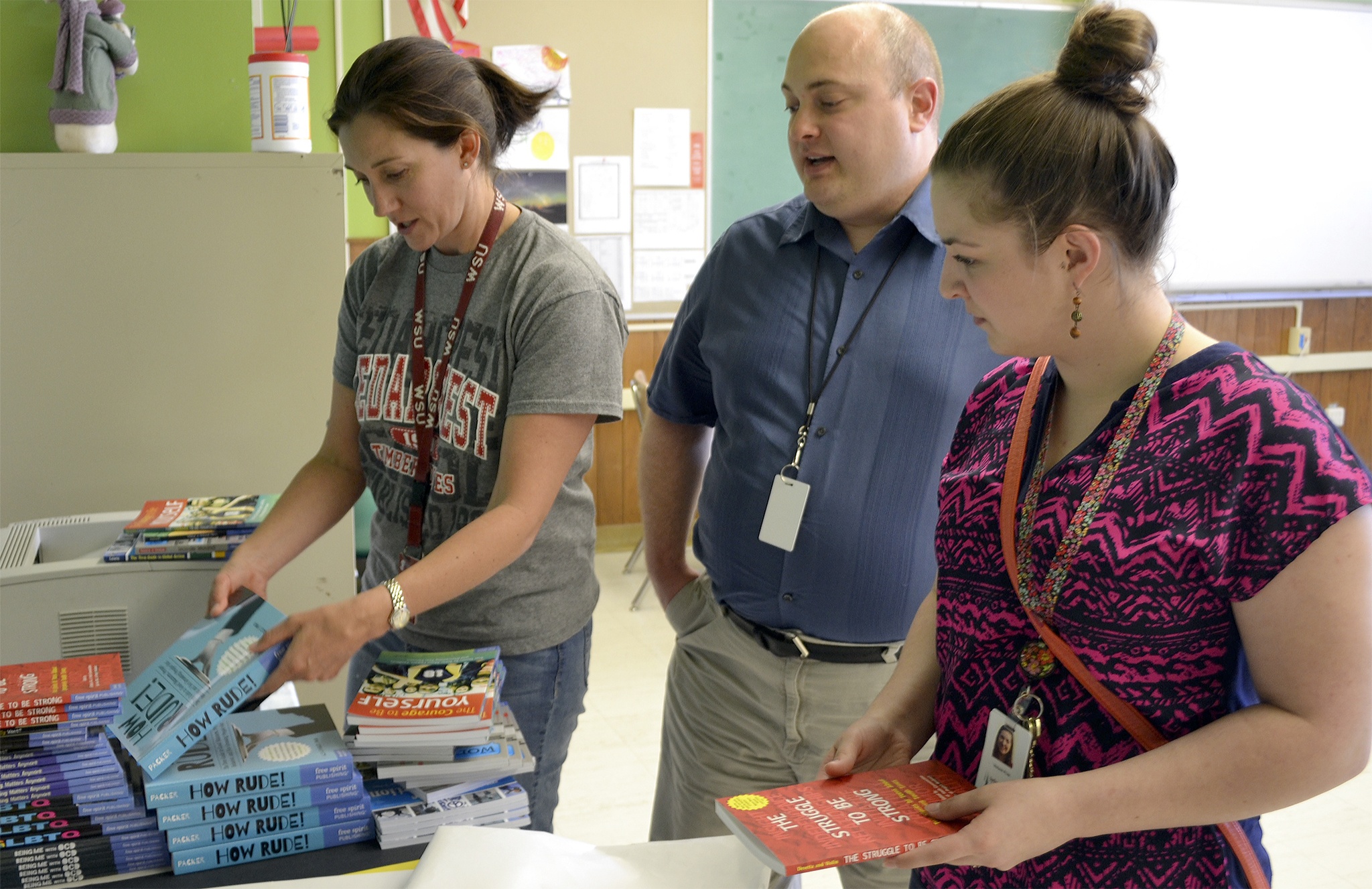MARYSVILLE – Kids are using drugs at a younger age. The question is why?
Experts working with students in the Marysville School District say the No. 1 reason is to cope with stress.
Adults may dismiss the stress, but to the teens it is very real.
“They have a skewed view of the world” because of their youth, said Natalie Gustafson, a student assistance professional at Cedarcrest Middle School.
Some of the stresses are very real, such as a death; divorce; sexual, physical or oral abuse; or drug use in the family. Other stressors may seem bigger than they are because of their inexperience in life, such as a breakup or drop in grades.
“The experience seems real to them,” she said. “The middle school brain interprets it one way.”
Rebecca Ford, at Arts and Tech High School, added, “Teen life can seem unbearable.”
Ford said kids may turn to drugs looking for comfort. But they find out drugs aren’t the answer, their lives get worse, and they sink into depression.
Important to helping them are discussions of prevention and early intervention.
“It’s about resiliency and helping them be strong,” said Madison Pruss, who is at Marysville-Pilchuck High School. “We teach coping skills and try to connect them to healthy adults.”
That can be difficult in a family that uses drugs. In that environment, students can feel pressured to use drugs. Gustafson said they often can’t talk to their parents because they have grown up in a family that uses drugs or alcohol.
“We teach them refusal skills,” said Erik Haakenson, at Totem Middle School.
Gustafson said they tell students: “It doesn’t have to happen to you. We show them how to create opportunities and build a focus to keep away from using.”
Pruss encourages the students to focus on what they can control, which is self-regulation. “We can help them find the words to talk to their parents,” she said.
Listening is so important, Pruss added. “Let them express their anger,” she said. “Otherwise they may not open up again.”
Ford said they help students make connections, showing them what resources are available. “There’s a real out for them,” she said.
The goal of the program, which is in the first of a five-year period and funded by a federal mental health grant, is to prevent or reduce the use of alcohol, tobacco or other drugs and to help with mental health difficulties.
Pruss said students are referred by themselves or academic counselors. “We pick apart the layers,” she said.
Ford said she focuses on prevention education in individual or group settings. Gustafson said group opportunities are valuable.
“They aren’t afraid to open up in front of peers,” she said. “Kids will share, ‘I tried this.’ They’re willing to admit some use.”
Ford said she is very purposeful in who she puts in groups. They have to be able to trust one another.
Gustafson said group work helps the students form important bonds. She said there often already is a certain familiarity, such as even though people try to keep things secret people already know.
Ford said they often “open up quickly. They haven’t talked about it.”
Pruss added, “They crave adult attention, and it’s a place to open up.”
Haakenson said at age 13 students have confidentiality if they don’t want parents involved. He added the district has a prevention education series in the middle schools. Several students have made comments, and officials have followed up with services.
Gustafson said students often get into drugs in the seventh grade. That starts the awkward stage where kids feel isolated with not a lot to do, yet they often have autonomy for the first time in their life. They may start with prescription drugs or get illegal drugs from an older sibling.
Reasons students give for using the first time include: my friend talked me into it, it was in the house, I wanted to party, my siblings use and everybody does it sometime.
They may want to quit, but Pruss said they want to have friends, and they are reluctant to find new ones. Haakenson said some families actually end up moving to get their kids away from drug friends.
Gustafson recommends talking to kids early. But be careful of the messages you send. She said some parents tell their kids they will pick them up if they ever need a ride. But she said kids could read into it that it’s OK to drink and make bad choices.
Haakenson said early prevention and intervention is key. “Don’t think, ‘I should be able to deal with this,'” he said. “Don’t wait to get services.”


